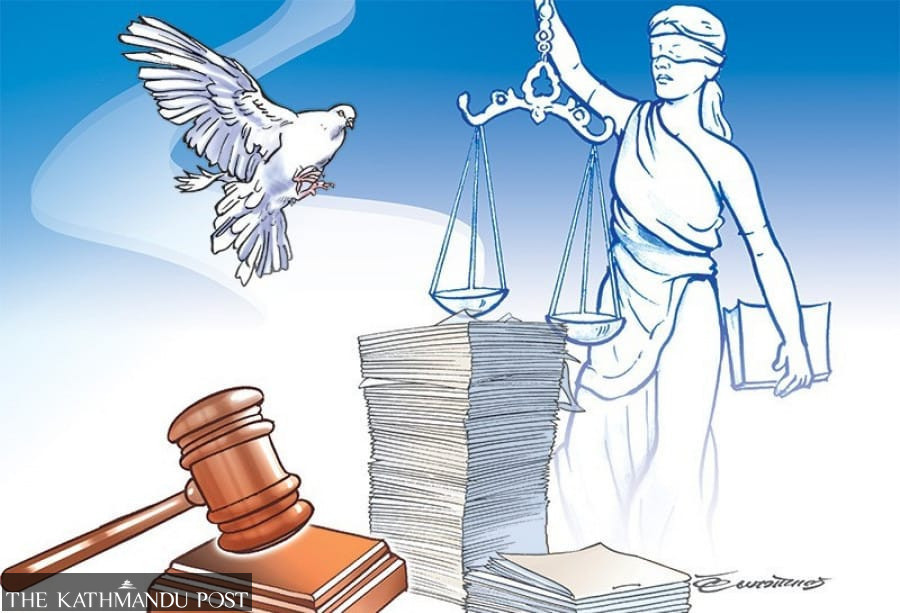National
Legality of transitional justice bodies comes under question
Parliament was not informed about July 4 decision to extend the bodies’ tenure within 30 days.
Binod Ghimire
On July 4, the government extended the terms of the two transitional justice commissions that were expiring after two weeks by six months.
Since it was not possible to immediately amend the Enforced Disappearances Enquiry, Truth and Reconciliation Commission Act because a bill seeking revision to the Act remains stuck in Parliament, the government used the authority to remove difficulties delegated by the law for the term extensions. Section 42 of the Act authorises the government to remove difficulties.
Such a decision, however, must be presented in Parliament within 30 days. Though the legal deadline has passed, the government hasn’t been able to present the decision in Parliament owing to the ongoing obstruction by the CPN-UML. The main opposition has been obstructing the business of both houses since July 26 demanding a high-level panel to investigate a recent gold smuggling case.
Presentation of the decision figures on the agenda of every House meeting, but the meeting gets postponed. Legal experts say since the Act clearly says the House must be informed about the term extension decision within 30 days, the legality of the commissions has come under question since the statutory deadline has passed.
“Whatever the reason, the government hasn’t been able to meet the legal deadline. So this leaves room to question the legality of the Truth and Reconciliation Commission and the Commission of Investigation on Enforced Disappeared Persons,” advocate Sunil Ranjan Singh, a former member of the disappearance commission, told the Post. “One can move the court arguing that the commissions do not exist anymore.”
After failing to revise the Act on time, the government had decided to extend the terms of the two transitional justice commissions until January 14 next year. The commissions, constituted in 2015, had two years to investigate the cases of human rights violations during the Maoist insurgency. As they failed to accomplish their jobs within the deadline, they have got term extensions repeatedly. The latest extension of July 4 was the seventh since their formation eight years back.
Officials from the truth and reconciliation commission refused to comment saying it is the government’s responsibility to present the decision in Parliament and they have no role in the matter.
Phanindra Gautam, spokesman for the Ministry of Law, Justice and Parliamentary Affairs, said the decision hasn’t been presented not because the government doesn’t want to. “It hasn’t been presented because the House hasn’t functioned. Moreover, the commissions will not be dissolved just because the decision hasn’t been produced in Parliament,” he told the Post. “I believe the provision of 30 days was introduced with a motive that the House should be brought into the notice about the extension. However, I agree it can be an issue to be interpreted by the court.”
In July last year, the then Sher Bahadur Deuba government had extended the terms of the commissions by three months giving rest to their chairs and members. As the bill to amend the Act was tabled in Parliament in the same month, the government was hopeful that the bill would be endorsed soon and a new process for the appointment of office bearers would begin. However, the term of the House of Representatives expired before it could pass the bill.
In the absence of office bearers, both the commissions remain defunct since July last year. The truth commission has received 63,718 complaints while the number of cases is far lower—just 3,223—at the disappearance commission. The previous leadership of the disappearance commission decided to investigate only 2,484 cases saying others do not fall under its jurisdiction.
The bill to amend the Act must be endorsed through the federal parliament for the commencement of the new process to appoint the chairpersons and the members of the commissions. Following differences among cross-party lawmakers, a sub-committee under the Law and Human Rights Committee of the lower house hasn’t been able to give final shape to the bill. The sub-panel has already missed the 15-day deadline twice. “The sub-committee is yet to reach an agreement on the bill. The lawmakers are trying to find consensus on contentious issues,” Adhiraj Rai, secretary of the committee, told the Post. “The sub-panel is looking for yet another extension. It might be for two weeks.”




 9.51°C Kathmandu
9.51°C Kathmandu














